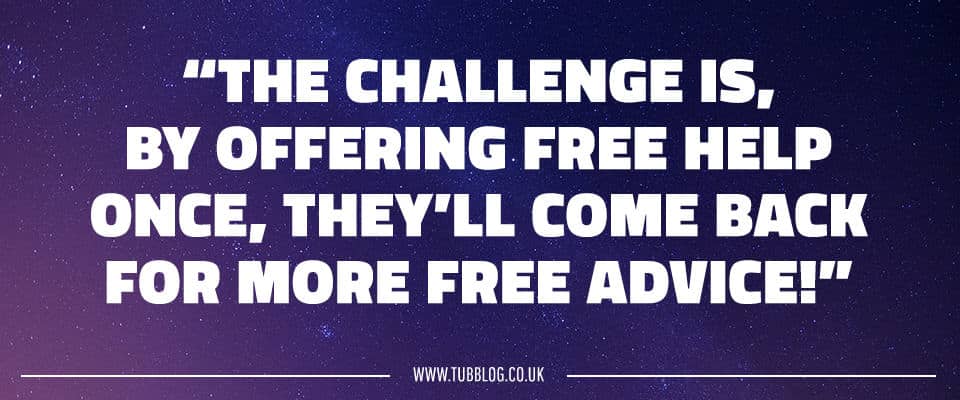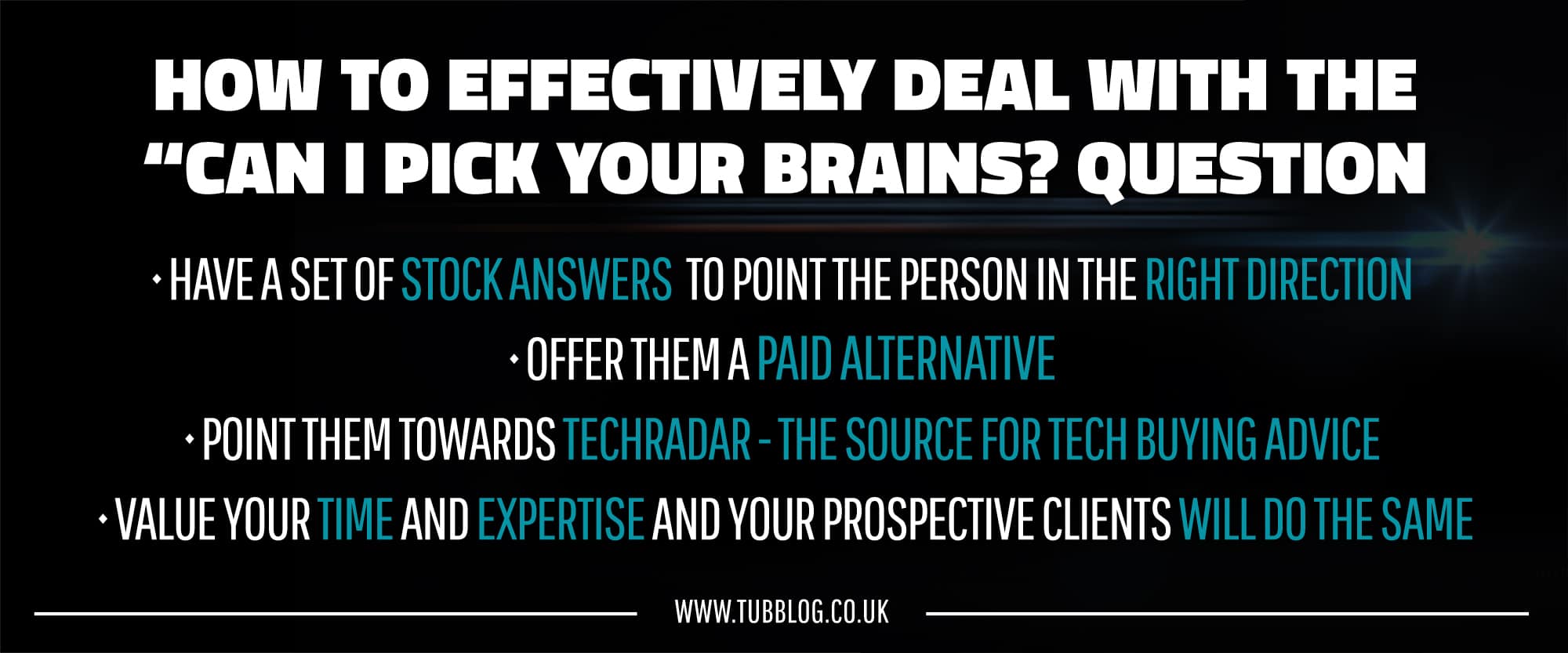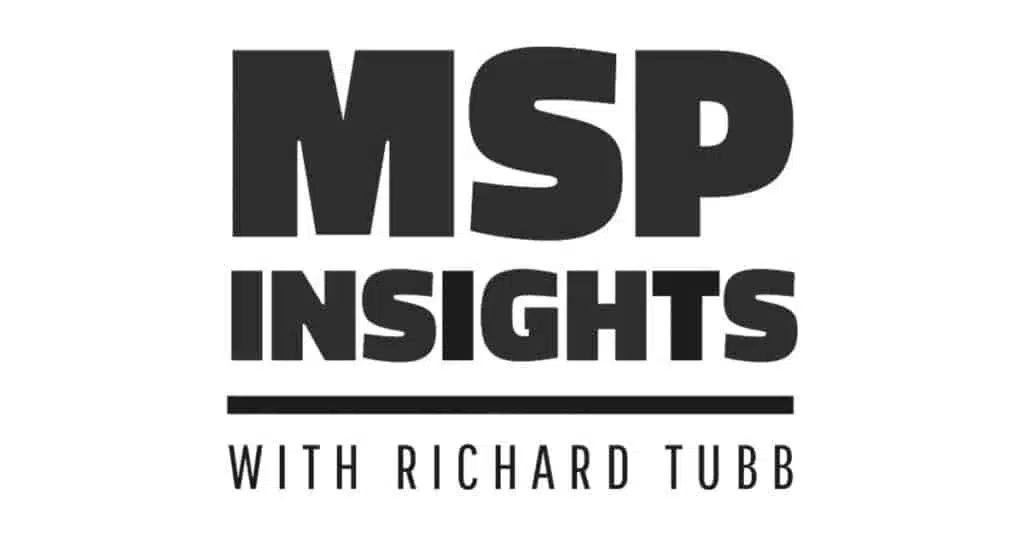As someone who works within the IT industry, you’ll be familiar with the phrase from friends, family and
acquaintances of “Can I pick your brains?”
People see you as the IT expert and with everyone using IT nowadays, that expertise will be in demand.
- “I’m thinking about buying a new computer. What do you recommend?”
- “I’m buying a new Smartphone. Which would you go for?”
- “How should I manage my emails more effectively”
… are three common questions I hear all the time.
Then there is the truly dreaded “My computer is running slowly. What do you think I should do?” query.
Because all IT people know how to fix a computer without looking at it, right?
Can I Pick Your Brains?
All joking aside, while you are used to these types of questions in your personal life, you’re probably equally familiar with them in your professional life.
When they come from paying clients – that’s part of your job.
After all, the client pays you to help them solve their problems!
These questions also provide Managed Service Providers (MSPs) with some great opportunities to write content.
I’ve written blog posts such as How to Protect the Data on your Laptop or Mobile Device specifically after a client asked me for help.
But what about when they come from prospective clients who aren’t paying you?
How do you deal with the “Can I pick your brains?” requests from non-clients?
Questions beget Questions
It’s worth saying that I understand that your first instinct is to try to help.
When someone you feel is a prospective client asks “Which new computer should I buy?” you’ll helpfully offer them a couple of choices.
The challenge is, by offering free help once, they’ll come back for more free advice!
It’s the same as writing proposals that spell out all the steps a prospect should take.
It’s free consultancy.
I’ve written before about why I think you should stop writing sales proposals and I think this is a similar situation.
“I’ve looked at the PC’s you recommend and want some advice on the options. Also, I’ve spotted a cheaper PC elsewhere. Is that a good fit for me?” is a common follow-up question to your helpful response.
And so you get drawn into offering more and more help – basically assisting the person in choosing their PC.
Will they be grateful? Yes.
Will it make them more likely to become a paying client? Absolutely not.
You see, the trouble with giving away free advice of this nature is that it sets an expectation of both your time and your value.
If you give something away for free, the next time they come to you for advice and you want to charge for it – how will they react?
In my experience, not well.
The previous goodwill you’ve built by giving away free consultancy will be replaced by an irritation that you won’t do it again.
How to be helpful When People Ask to Pick Your Brains
The conundrum remains!
You want to be helpful to the person who has asked the question, in the hope they will view you positively and decide to work with you, but you don’t want to give your time away for free or be drawn into a time-sucking spiral of questions.
In this scenario, it pays to have a set of stock answers you can give which helpfully point the person in the right direction and offer a paid alternative.

“Whenever my paying clients ask me that question, I point them towards Techradar – The Source for Tech Buying Advice.
TechRadar lists the top reviewed PCs in a number of categories. You’ll find your best choices there.
If you need something more specific, let me know – we offer a service for $100 where we help pick the right PC for you.
You probably don’t need to pay for our help though – so I think you’ll find that TechRadar gives you all you need!”.
How to Move Past the “Pick Your Brains” Trap
With this type of response you’re doing four things:
- “Whenever my paying clients ask me that question” – you’re clearly stating this is a question that your clients pay you for the privilege of answering.
- “I point them towards the TechRadar” – even though the person isn’t a paying client, you’re giving them valuable advice for free.
- “If you need something more specific, let me know – we offer a service for $100 where we will pick the right PC for you” – if the free advice you’ve given them isn’t enough for them, you’re explicitly stating that they can pay you for more.
- “You probably don’t need to pay for our help though” – given they were cheeky enough to ask for your advice for free, you are now giving them a huge “out”. You’ve clearly stated you have a paying service, but here you’re stating you don’t expect them to take it.
Conclusion
Dealing with the dreaded question “Can I pick your brains?” can be a drain on your time — if you let it!
Many IT professionals fall into the trap of giving away valuable free consultancy to people who don’t value it.
By formulating a stock response to the standard “Can I pick your brains?” questions, you are able to help the person asking the question to help themselves, giving a positive impression.
You also clearly state that your time is valuable and so if the person wants to “pick your brains” above and beyond these helpful pointers – there will be a cost involved.
Value your time and expertise and your prospective clients will do the same.
Give away free consultancy at every opportunity, and don’t be surprised if you’re never able to charge for your time!
What is the most common ”pick your brains’ question you hear as an IT Professional? What’s your stock answer that saves you time and stops you giving away free consultancy? I’m intrigued to know! Please leave a comment below or get in touch!


















Comments
4 thoughts on How to effectively deal with the “Can I pick your brains? question
JAY GUERRA
24TH MAY 2018 15:43:07
This is gold Richard and solves a real PITA. Once, I gave 2 options for a laptop to some client. It came to bite me dearly when she went for a cheaper Chromebook and couldn't join it to the domain.
RICHARD TUBB
14TH JUNE 2018 07:15:03
Thanks, Jay. I'm glad to have been of help!
FRANK
29TH NOVEMBER 2022 08:46:03
A doctor and a lawyer were talking at a party. Their conversation was constantly interrupted by people describing their ailments and asking the doctor for free medical advice. After an hour of this, the exasperated doctor asked the lawyer: “What do you do to stop people from asking you for legal advice when you’re out of the office?” “I give it to them,” replied the lawyer, “and then I send them a bill.” The doctor was shocked, but agreed to give it a try. The next day, still feeling slightly guilty, the doctor prepared the bills. When he went to place them in his mailbox, he found a bill from the lawyer.
RICHARD TUBB
29TH NOVEMBER 2022 12:06:02
Frank -- brilliant story. I love it. :-)